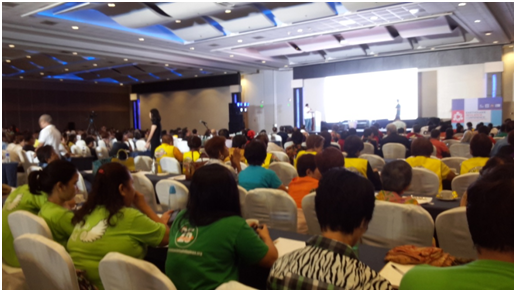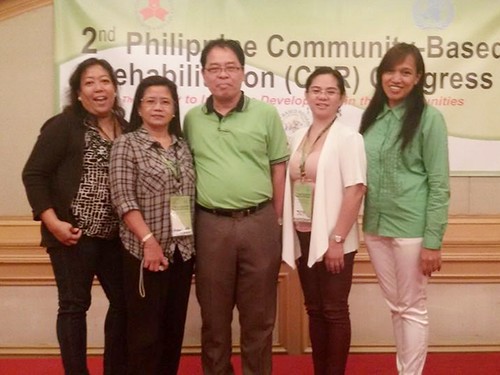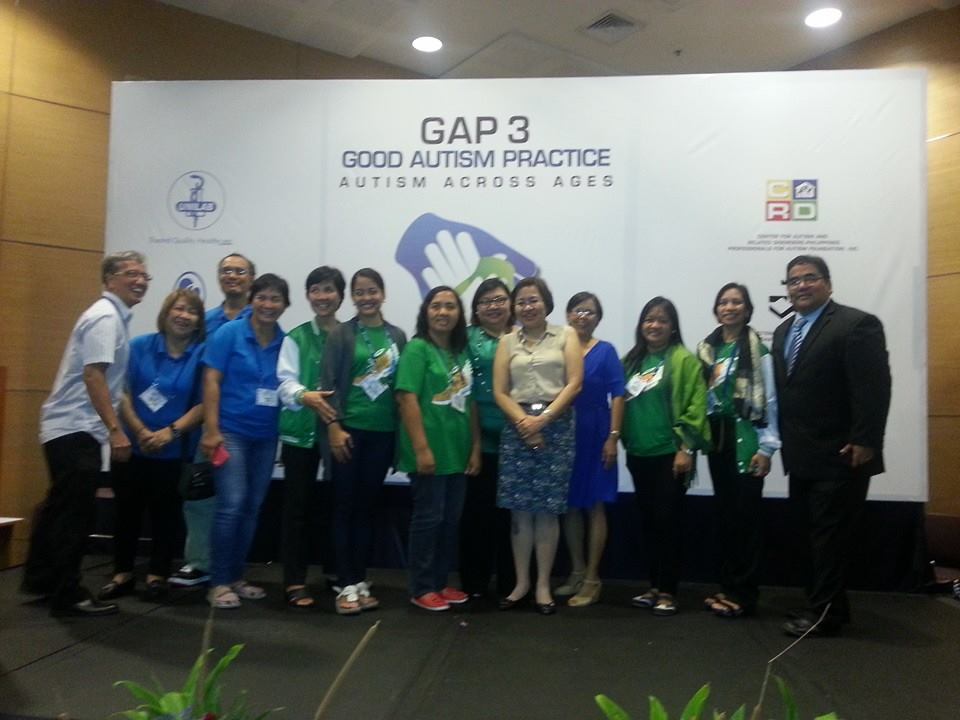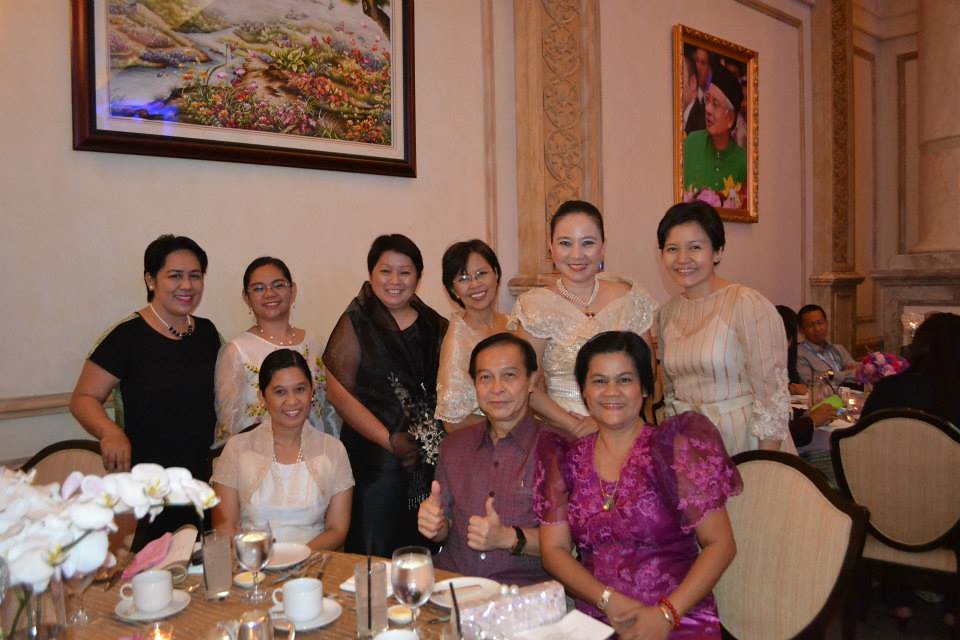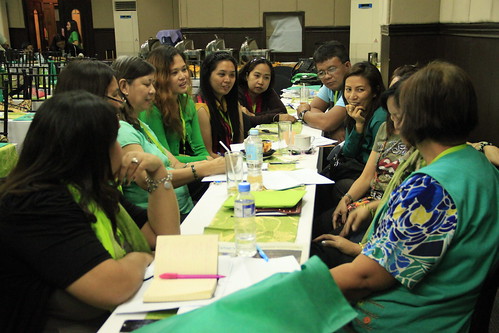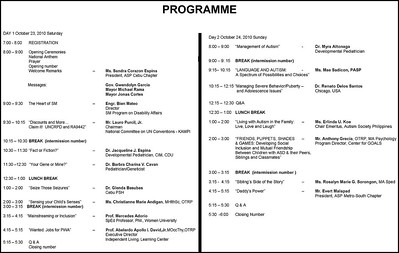By Ranilo Sorongon, ASP Executive Director
The 3rd Regional Conference on Autism, with the theme “Making Sense of Autism, A Path to Hope, Possibilities and Solutions,” was a resounding success! Hosted by ASP Cagayan de Oro Chapter, the confab was attended by more than 200 participants, coming from the different parts of Visayas and Mindanao. The event took place at Maisie Van Vactor Auditorium, Pilgrim Christian College, Cagayan de Oro City, last 28-29 October 2011.
 |
| The participants of the 3rd Regional Conference on Autism |
According to ASP Cagayan de Oro President, Angie Abellanosa, the conference recognizes the need to address the range of issues affecting families who have children with autism in the CDO region. The main focus of the conference, aims to make a real difference in the quality of life of each member of the family of the CWA; bringing together the expertise of doctors and interventionists, experiences of parents and even an individual on the spectrum.
In full support were the delegation from the National Office, headed the President Mary Grace Adviento, who was joined by Peng So (Vice President), Tiffany Tan (Secretary) with her husband and family, Evelyn Go (Treasurer), Gina Bermudo (Trustee) and Dang Koe (Chair Emeritus). Executive Director, Ranil Sorongon, came a day ahead to assist the chapter with the last minute preparations.
 |
| ASP National President Mary Grace Adviento during her inspirational message |
Chapter representatives from as far as Rosales, Pangasinan; was represented by Teachers Fatima, Thea and Rhona; through the generosity of Mayor Ricardo Revita. Other representatives were Sandra Espina (Cebu-Chapter President), Beth Birondo (Davao City Chapter), Teacher Galda Galera (Dipolog City Chapter), Ms. Nida Wu (Dumaguete City Chapter), and Ini Vina Solizar- Otani (Gen. Santos City Chapter- President).
The conference opened with an instrumental rendition of the “The Prayer” led by members of the Pilgrim Christian College Band, Ms. Issay Abellanosa on flute and Orwille Mercado on violin. It was followed by a native rendition of the National Anthem, courtesy of the Rondalla Group of the same college.
 |
| Ms. Issay Abellanosa on flute and Orwille Mercado on violin in the instrumental rendition of the “The Prayer” |
ASP Cagayan de Oro Chapter President, Ms. Angie Abellanosa, welcomed the participants followed by an inspirational message from ASP National President, Mary Grace Adviento. Former Congressman and current Misamis Oriental Governor Oscar Moreno gave the key note address. Gov. Moreno assured the chapter of his support to the chapter especially the “Early Detection and Intervention on Autism Project” of ASP.
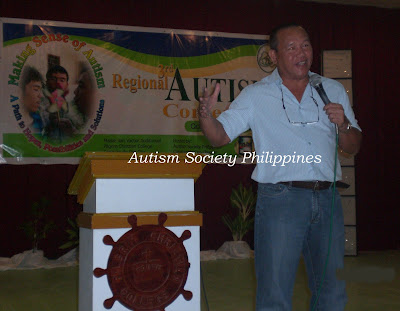 |
| Misamis Oriental Governor Oscar Moreno gave a inspirational message |
The two day conference was an excellent opportunity for the participants to update their knowledge on autism and listen to parents of persons with autism; like Dang Koe (Chair Emeritus) on “Living with Autism in the Family: Live, Love and Laugh” and Ms. Riza Cansanay (Laguna Chapter President) on “Home Management Program.”
Persons with autism were also highlights of the event. JR Tan, a person with autism and self-advocate, also shared his personal journey having this condition. He is currently a 4th year college student taking up Bachelor of Science in Accounting. Another is a teen-age girl with autism, Hannah Estañol, who entertained the audience with wonderful song numbers in between lectures.
 |
| PWA Hannah Estañol |
CDP home-grown speakers and developmental pediatricians, Dr. Cindy Llego and Annah Rebecca Doroja, and lectured on “Understanding Autism” and “Updates on Autism,” respectively. They were joined by their mentor, Dr. Stella Manalo, who spoke on “Sexuality and Autism” on the second day. Prior to her was Atty. Jerefe T. Bacang of the Commission on Human Rights-Region IX, who spoke on “Our Rights….Let’s Claim It! She focused on the UN Convention on the Rights of Persons with Disabilities and local laws like the RA 9442 and how it was being implemented in the region.
The other speakers coming from Manila, were led by Prof. Mercedes Adorio on “Inclusion of Students with Autism”, her former students from the University of the Philippines, Diliman Quezon City, Giselle Principe on “Social Skills”, Yolanda Bautista in “Jobs for Persons with Autism” and Rosalyn Sorongon on “Siblings’ Side of the Story”. They were joined by two professionals who are experts in their own field, Kathy Reyes, a speech therapist on “Speech, Language and Communication” and Lady Suarez, an occupational therapist on “Sensing Your Child Senses”.
The 200 participants composed of parents of persons with autism, professionals and students of special education and psychology; were especially elated to a 2-day jam-packed lecture series from speaker-experts. With a very affordable registration fee, inclusive of food and hand-outs, ASP is thankful to all the family, friends, volunteers, and sponsors, who made this event possible.
Congratulations to the ASP Cagayan de Oro Chapter, headed by Ms. Angie Abellanosa, and supporter-members, Ms. Elsa Lim, Ms. Evalyn Layug and Teacher Ellen. Special thanks to Pilgrim Christian College for hosting the event; and to Mr. Cris Abellanosa, and children, Issay, Carlo and Bogart for their wonderful patience, support and hospitality.
The conference in Cagayan de Oro completed the first round of ASP’s regional conferences started by Cavite Chapters in January 2010, followed by Cebu Chapter in October 2010. See you all in Baguio City for the 4th Regional Conference on Autism!
You can call or text ASP Cagayan de Oro City Chapter President Angie Abellanosa at 0906-126-0630 or 0932-157-5966.
Be an Angel for Autism. Donate generously to ASP Programs and Services. Donate to Autism Society Philippines Metrobank Kamias Branch 047-3-04751874-2. Email us at autismphils@gmail.com or call 7-903-5496.




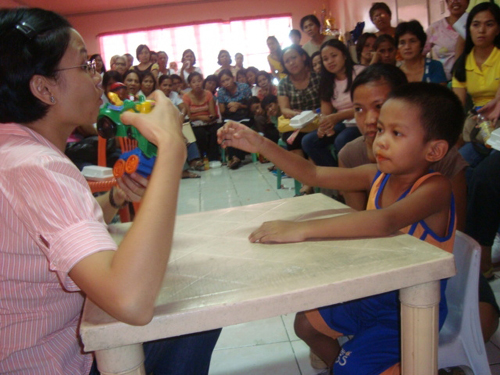
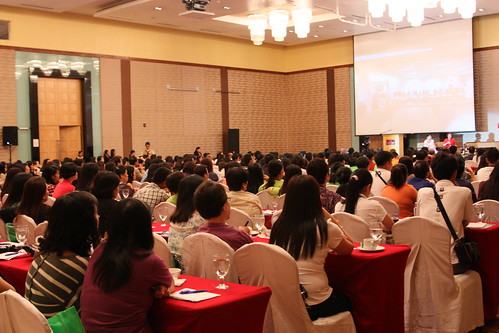

 Posted in:
Posted in: 
